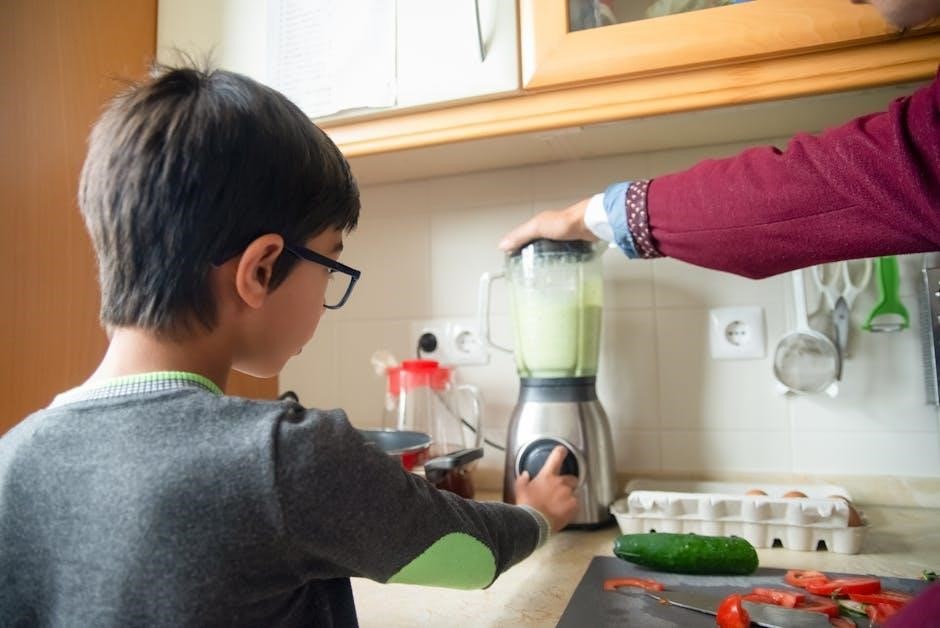The Indian Boarding Homes Class Action addresses historical injustices faced by Indigenous children. A PDF application form is available for those eligible to seek compensation through the program.
1.1 Overview of the Indian Boarding Homes Program
The Indian Boarding Homes Program was established in the 1950s to place First Nations and Inuit children in private homes for schooling. The program aimed to assimilate Indigenous children into Western culture but often subjected them to abuse, neglect, and cultural erasure. This traumatic experience disrupted families and communities, causing long-lasting emotional and cultural harm, leading to the class action lawsuit seeking justice and compensation for survivors.
1.2 Purpose of the Class Action Lawsuit
The class action lawsuit seeks justice for Indigenous survivors of the Indian Boarding Homes Program, addressing the harm caused by abuse, neglect, and cultural erasure. The lawsuit aims to hold Canada accountable for its role in operating the program and provide compensation to survivors. It also seeks reconciliation by acknowledging the government’s responsibility and the lasting impact on Indigenous communities, offering a path toward healing and reparation.

Historical Context of the Indian Boarding Homes Program
The Indian Boarding Homes Program began in the 1950s, placing First Nations and Inuit children in private homes to attend school, causing cultural displacement and trauma.
2.1 Creation and Operation of the Program
The Indian Boarding Homes Program was established in the 1950s by the Canadian government. It aimed to assimilate Indigenous children into European-Canadian culture by placing them in private homes. This initiative removed children from their communities, disrupting their cultural and familial ties. The program operated until 1992, with the government overseeing placements and funding. Its legacy is marked by allegations of abuse and neglect.
2.2 Impact on Indigenous Communities
The Indian Boarding Homes Program caused profound harm to Indigenous communities. Children were separated from their families, leading to cultural erosion and identity loss. The program disrupted community structures and contributed to intergenerational trauma. Many survivors experienced emotional and psychological distress, compounded by the loss of language and cultural practices. These impacts have had lasting effects on Indigenous communities, making reconciliation and healing essential.

Settlement Agreement Details
The Federal Court approved a $1.9 billion settlement for Indigenous students placed in private boarding homes. This compensation addresses the harms of forced relocation, cultural loss, and abuse.
3.1 Compensation Structure
The settlement offers two compensation categories. Category 1 provides a flat $10,000 for all eligible individuals. Category 2 offers additional compensation ranging from $10,000 to $200,000 for those who experienced abuse or harm. Payments aim to acknowledge the suffering and loss of culture, language, and family ties endured by Indigenous children in the boarding homes. Claims must be submitted by the specified deadline to receive compensation.
3.2 Eligibility Criteria for Compensation
Eligibility is based on placement in private boarding homes under the Indian Boarding Homes Program between September 1, 1951, and June 30, 1992. First Nations and Inuit children placed in these homes qualify. Compensation is available for Category 1 claims ($10,000) and Category 2 claims ($10,000 to $200,000) for those who suffered abuse. Applicants must submit a claim form by the deadline of February 22, 2027, to receive compensation.

The Application Process
The application process for compensation began on August 21, 2024. Claimants can download the PDF claim form or complete it online. The deadline for submissions is February 22, 2027.
4.1 Steps to Complete the Claim Form
Eligible individuals can access the PDF claim form online or request it by mail. Review the guide carefully, complete all required fields, and submit by February 22, 2027. Category 1 claims are straightforward, while Category 2 claims require additional documentation of abuse. Submit online, by mail, or fax. Assistance is available through the Claims Administrator or legal counsel for complex cases.
4.2 Category 1 and Category 2 Claims
Category 1 claims provide a base compensation of $10,000 for all eligible applicants. Category 2 claims offer additional compensation up to $200,000 for those who experienced abuse. Applicants must complete both forms if pursuing Category 2. Documentation and evidence of harm are required for Category 2 claims, while Category 1 is solely based on participation in the program.

Legal and Support Resources
Class Counsel, such as Klein Lawyers LLP and Edwards Bell Jewitt LLP, provide legal guidance. The Claims Administrator at 1-888-499-1144 assists with applications. Emotional support is available through the Hope for Wellness Hotline at 1-855-242-3310.
5.1 Role of Class Counsel
Class Counsel, including Klein Lawyers LLP and Edwards Bell Jewitt LLP, provide legal support to claimants. They assist with completing forms, understanding eligibility, and navigating the claims process. Their services are free for Category 1 claims, while Category 2 claims may require separate legal representation. Class Counsel ensures claimants receive fair compensation and are well-informed about their rights and options under the settlement agreement.
5.2 Contact Information for Assistance
For assistance, contact the Claims Administrator at 1-888-499-1144 or visit their website. Class Counsel, including Klein Lawyers LLP (1-604-874-7171) and Edwards Bell Jewitt LLP (1-807-344-1112), provide legal support. Additional resources and forms are available online or by mail to 18 York Street, Suite 2500, Toronto, Ontario, M5J 0B2. Emotional support is accessible through the Hope for Wellness Hotline at 1-855-242-3310.

Important Deadlines
Key deadlines include the Claims Deadline of February 22, 2027, and the Opt-Out Deadline of July 22, 2024. Missing these deadlines may bar compensation claims or participation.
6.1 Claims Deadline
The deadline to submit a claim for compensation in the Indian Boarding Homes Class Action is Monday, February 22, 2027. Eligible individuals must complete and mail or email their PDF application form to the Claims Administrator by this date. Forms can be downloaded from the official website or obtained by contacting Class Counsel. Missing this deadline will result in ineligibility for compensation under the settlement agreement.
6.2 Opt-Out Deadline
The deadline to opt-out of the Indian Boarding Homes Class Action was July 22, 2024. Individuals who wished to exclude themselves from the settlement had to submit a completed PDF Opt-Out Form by this date. The form was available on the official website or could be requested from the Claims Administrator. Opting out excluded participants from receiving compensation but allowed them to pursue separate legal action if desired.

Cultural and Emotional Support
7.1 Availability of Counselling Services
Counselling services are available to support Class Members. The Hope for Wellness Hotline provides emotional support 24/7 at 1-855-242-3310 or online at www.hopeforwellness.ca.
Emotional and mental health counselling is available to Class Members through the Hope for Wellness Hotline. This service provides 24/7 support at 1-855-242-3310 or online at www.hopeforwellness.ca. Counselling services are confidential and designed to help individuals process trauma and harms experienced during their time in the Indian Boarding Homes Program. These resources aim to support healing and well-being for those affected by the program.
7.2 Community Resources
Community resources are available to support Indigenous individuals affected by the Indian Boarding Homes Program. These include cultural programs, traditional healing services, and community-based initiatives to promote mental health and well-being. Additional support can be accessed through local Indigenous organizations and the Hope for Wellness Hotline at 1-855-242-3310. These resources aim to foster healing and reconnect individuals with their cultural heritage. Visit the official website for more details.

Opt-Out Process
The opt-out deadline was July 22, 2024. To opt out, download the PDF Opt-Out form from the official website or request it by phone. Submit completed forms by mail or email to Class Counsel by the deadline to exclude yourself from the settlement.
8.1 Reasons to Opt-Out
Individuals may opt out to pursue independent legal action or if they disagree with the settlement terms. Opting out excludes them from receiving compensation under the class action but allows them to retain their right to sue Canada separately for damages related to their experiences in the Indian Boarding Homes Program.
8.2 How to Submit an Opt-Out Form
To opt out, download the PDF Opt-Out Form from the official website. Complete and sign it, then submit by email or mail to Class Counsel. The deadline for submission is July 22, 2024. Ensure timely delivery to avoid missing the deadline and being included in the class action by default. Detailed contact information is available on the Indian Boarding Homes Class Action website.

Final Thoughts
Participation in the Indian Boarding Homes Class Action is crucial for obtaining compensation and closure. Review the application process carefully and seek assistance if needed.

9.1 Importance of Participation
Participating in the Indian Boarding Homes Class Action is vital for acknowledging the historical suffering of Indigenous communities. It provides an opportunity to seek justice and compensation for the harms endured, such as abuse and loss of culture. By engaging in the process, individuals contribute to healing and reconciliation. Eligible participants are encouraged to apply to ensure their experiences are recognized and to support their communities’ future. Resources, including legal advice and counseling, are available to assist applicants throughout the process. The deadline for submissions is February 22, 2027, making timely action crucial for those seeking compensation.
9.2 Next Steps for Applicants
After submitting the application, applicants should monitor their emails for updates from the Claims Administrator. If additional documentation is required, respond promptly to avoid delays. For Category 2 claims, applicants may need to provide evidence of abuse, which will be reviewed carefully. Legal support is available to assist with complex cases. Keeping records of all correspondence is advisable. The final decisions on compensation are expected to be made within the specified timeframe, ensuring applicants are informed throughout the process. Applicants are encouraged to reach out to support resources if they need further assistance or clarification. Timely communication is key to ensuring a smooth claims process.